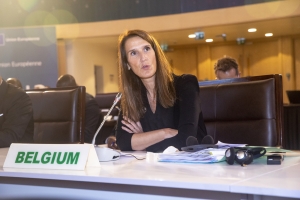Report of the General Assembly of the United Nations (UN)
The ministerial week of the 76th session of the United Nations (UN) General Assembly took place during the week of 20 September. In the wake of the COVID-19 pandemic, this year's General Assembly was held in a hybrid format; the General Debate and a number of meetings were held in person, while other events took place via video conference.
Why was Belgium present?
The General Assembly in New York is the largest diplomatic meeting in the world. It is a key meeting place, and an opportunity to meet with counterparts from around the world to discuss important/current issues. And often to discuss sensitive issues that deserve our attention.
For example, the Deputy Prime Minister met with African heads of state and government, including the presidents and foreign ministers of the Democratic Republic of Congo and Burundi, and the foreign ministers of Côte d'Ivoire, Niger, Tunisia, Libya and Ethiopia.
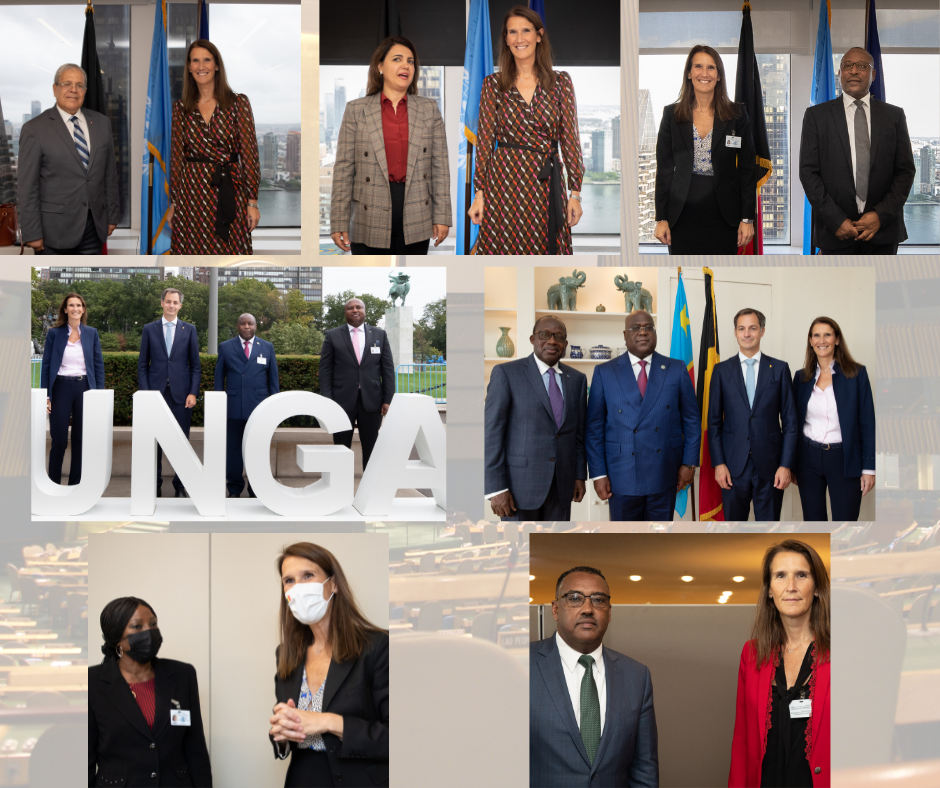
A second round of important bilateral meetings brought together counterparts from the Middle East and Asia, including ministers from Armenia, Palestine, Qatar, Jordan, India, the United Arab Emirates, Iran, Iraq and Pakistan.
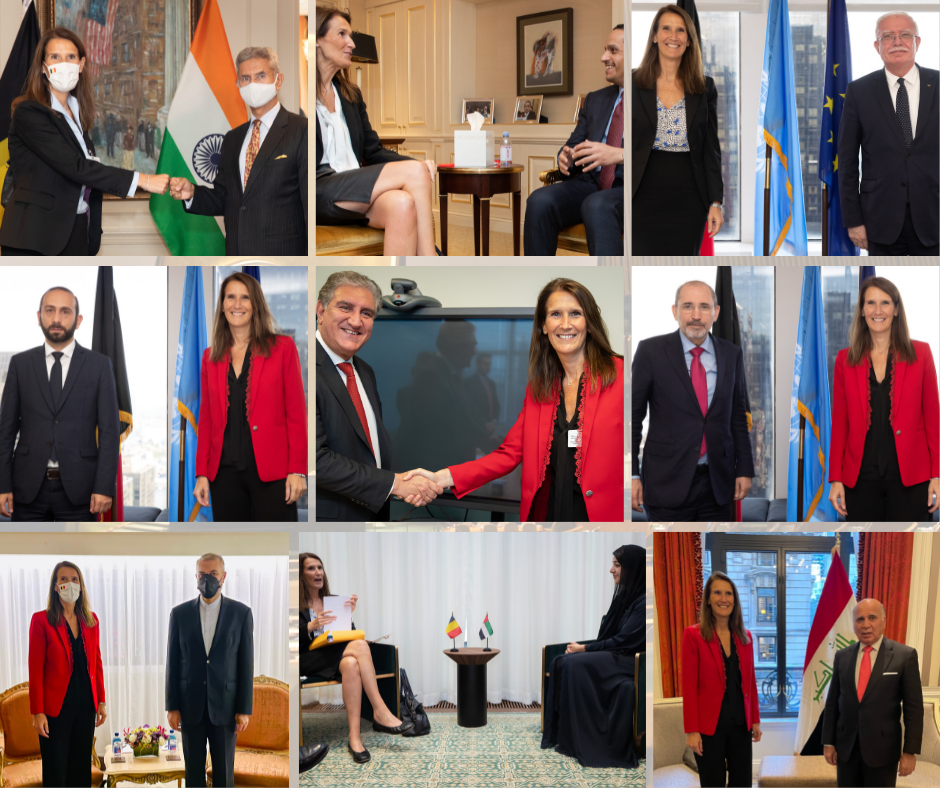
Bilateral meetings were also held with some of the top UN leaders, including Secretary General António Guterres and Martin Griffiths, Under-Secretary General for Humanitarian Affairs and UN Emergency Relief Coordinator (with Prime Minister De Croo). A meeting was also held with Michèle Coninsx, Belgian Assistant Secretary-General of the UN Counter-Terrorism Committee.
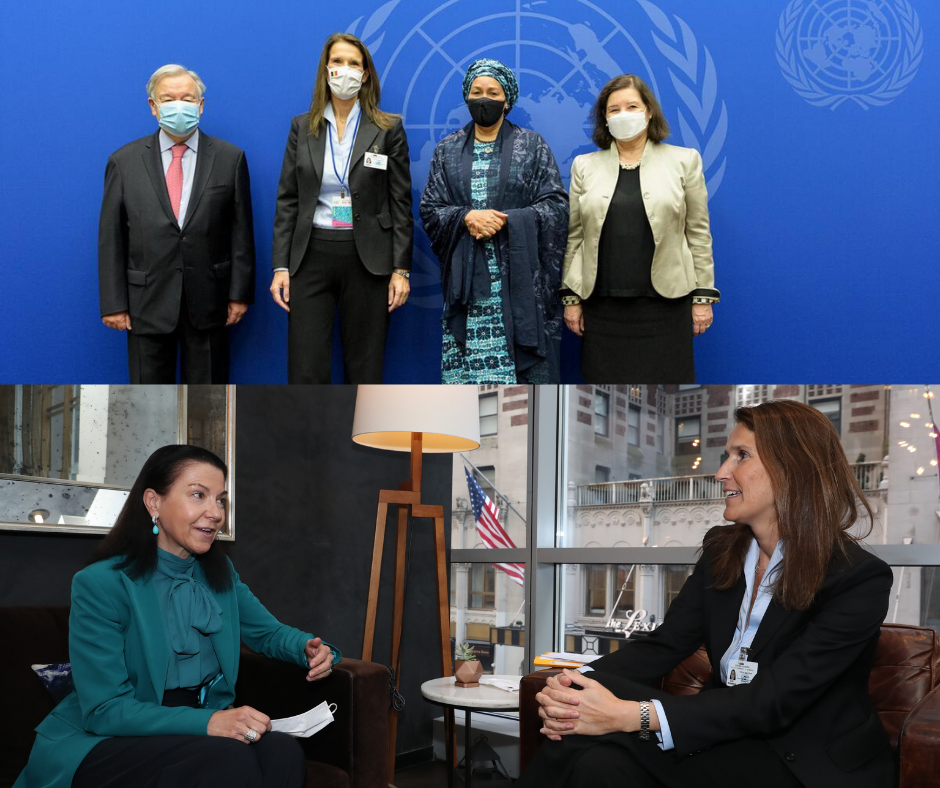
On the business side, the Deputy Prime Minister met (with or without PM De Croo) Microsoft CEO Brad Smith, Belgian fashion designer Diane Von Furstenberg and representatives of BelCham, the Belgian Chamber of Commerce in the US.
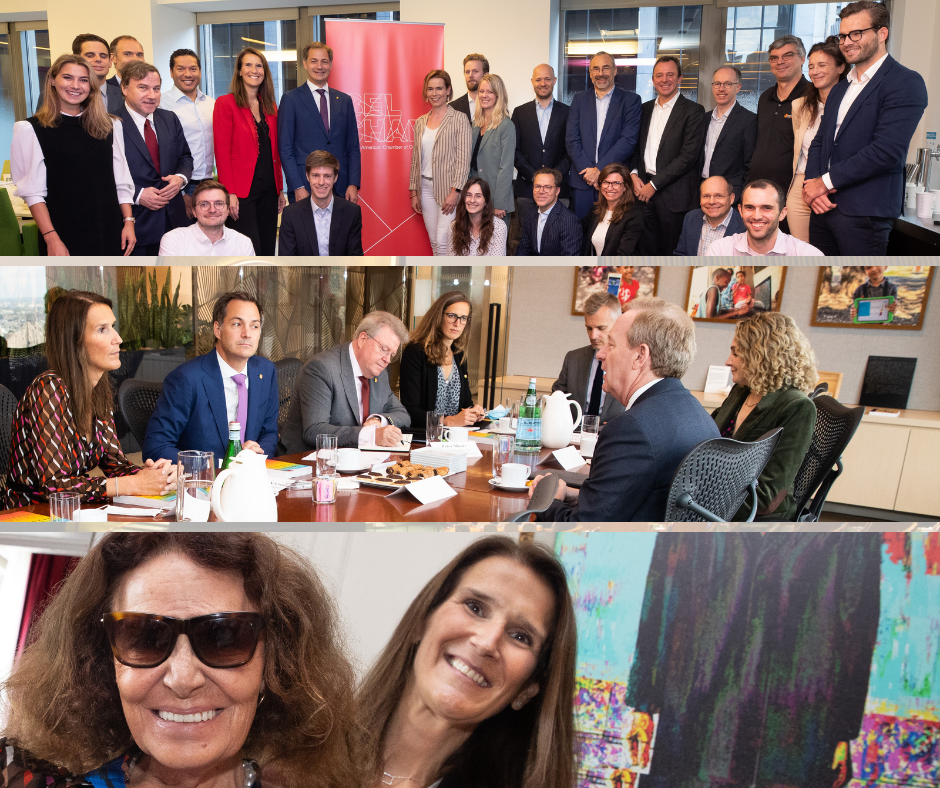
Lastly, the Deputy Prime Minister met leaders of the Jewish community in the United States.
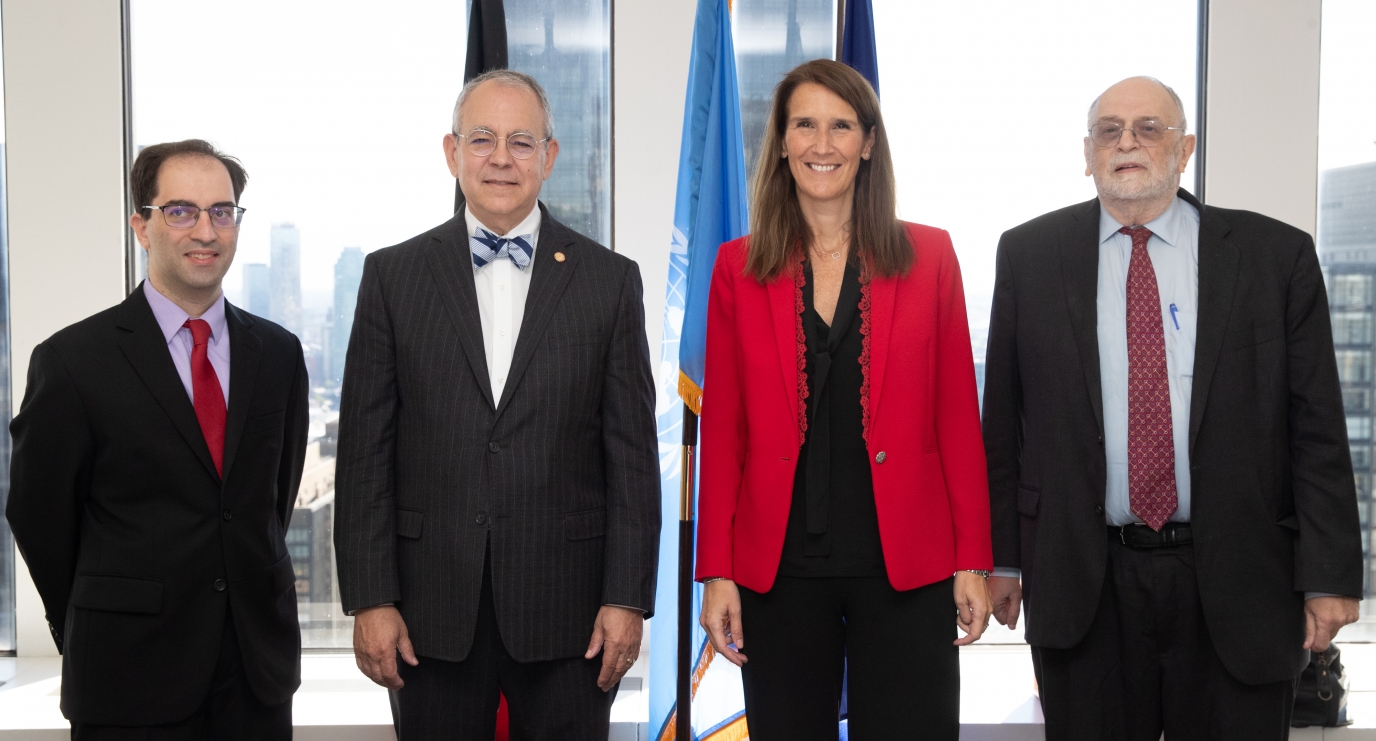
The General Assembly is also an opportunity to raise the profile and image of our country and put our priorities on the international agenda.
In recent years, one of Belgium's main priorities has been the protection of children in armed conflict. Belgium has a great deal of expertise in this area, not least thanks to our mandate in the Security Council (2019-2020), where we chaired the Working Group on Children and Armed Conflict. During ministerial week, Belgium - together with the European Commission, Niger and the NGO Save The Children - organised a meeting on the protection of children, the often invisible victims of armed conflict, as well as of COVID-19.
Sophie Wilmès said, "Adult wars have a devastating effect on children, who bear the physical, mental and emotional consequences throughout their lives. Children are killed, mutilated. They lose their parents, are kidnapped or serve as child soldiers. They are also at risk of sexual abuse and exploitation. COVID-19 is an aggravating factor. In addition to additional poverty and the lack of opportunity, COVID-19 measures often mean that children cannot attend school or have less access to healthcare. This suffering too often remains invisible."
Belgium has also always defended the fight against impunity and the rule of law, advocating for an impartial and independent judicial system. At the meeting of the Informal Ministerial Network for the International Criminal Court (ICC), the Minister reaffirmed Belgium's unwavering support for the ICC. "The Court is under pressure and its independence is regularly threatened. The founding States Parties have a fundamental duty to protect it," said Sophie Wilmès.
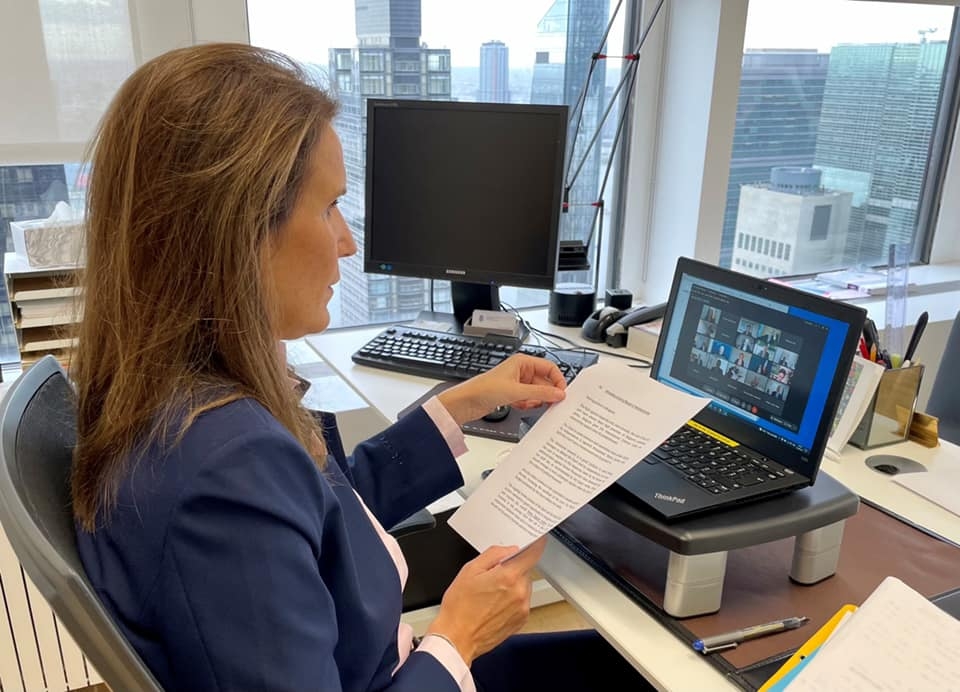
Belgium plays a key role at the international level, particularly in the defence of human rights. Our country is deeply convinced of the special task of protecting these rights, especially those of women and girls, who are often more vulnerable. The crisis in Afghanistan has clearly demonstrated this. This issue was raised, among others, at the meeting of the Informal Network of Women Ministers on the margins of the General Assembly.
Also of great importance for our country are the defence of democracy, the protection of universal freedoms and the fight against fake news.
In this context, Minister Wilmès, in the presence of her French counterpart Mr Le Drian, spoke about the International Initiative on Information and Democracy, launched in 2019 as part of the Alliance for Multilateralism. The initiative aims to integrate democratic safeguards into the global flow of information and communications. Sophie Wilmès said that, "COVID-19 has amplified misinformation and the manipulation of information on social media, further undermining the trust of citizens. Belgium reaffirms its commitment to defend access to free, pluralistic and reliable information."
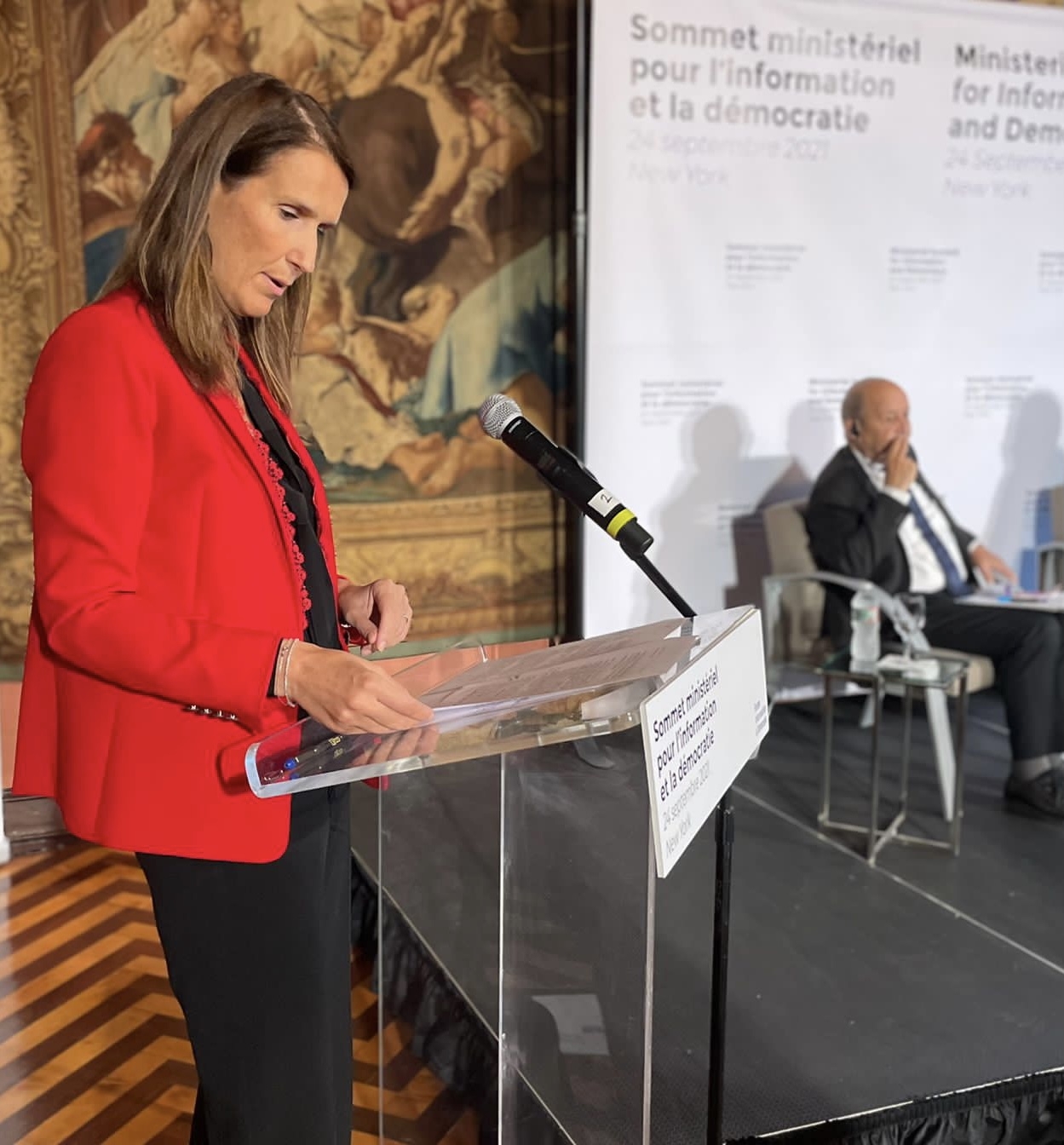
Finally, being present at the General Assembly is also an opportunity to help to resolve the world's major current and pending crises.
This year, the Afghan crisis received a great deal of attention, not only in many bilateral meetings, but also in general debates. On this point, the EU Foreign Ministers met at an informal Foreign Affairs Council (FAC) whose main topic was Afghanistan. This meeting was a logical follow-up to the informal bi-annual Foreign Affairs Council (Gymnich) of early September, which had already set out the broad lines of the European approach to the new government.
The situation in the Sahel and Yemen was discussed, as was the Middle East peace process. In this regard, the Minister participated in a ministerial meeting on the situation in the Middle East organised by the International Peace Institute, an independent international think-tank whose missions include promoting peace, security and sustainable development.

